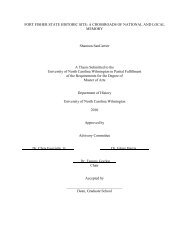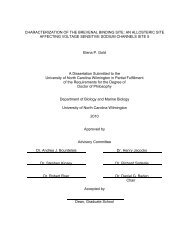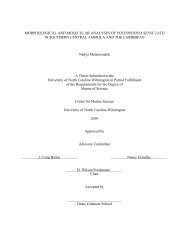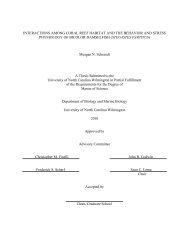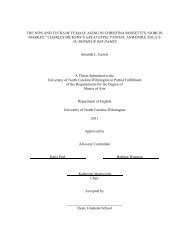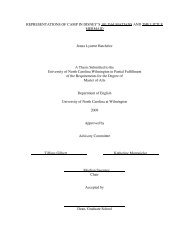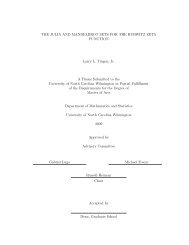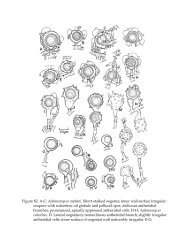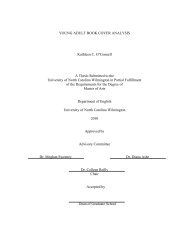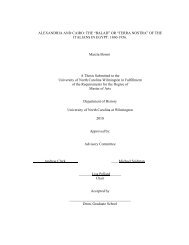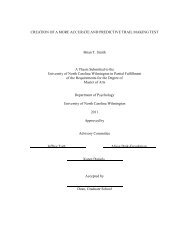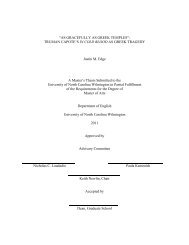AN AUGURY OF REVOLUTION: THE IRANIAN STUDENT ...
AN AUGURY OF REVOLUTION: THE IRANIAN STUDENT ...
AN AUGURY OF REVOLUTION: THE IRANIAN STUDENT ...
Create successful ePaper yourself
Turn your PDF publications into a flip-book with our unique Google optimized e-Paper software.
intimately involved in the U.S. counterculture movement...” 372 Babak Zahraie, and Iranian<br />
student at the University of Washington who faced deportation in the early 1970s, was active in<br />
the anti-war movement. 373 While Iranian individuals became involved in the American<br />
counterculture and anti-war movement, Iranian student groups became highly involved with<br />
American organizations. The ISAUS often participated in events with the Black Panthers. A<br />
rather unusual message from the ISAUS was published in The Black Panther by the end of the<br />
decade. Most publications by Iranian student groups were primarily critiques of the shah’s<br />
government. However, the one-page article written by the ISAUS in The Black Panther had no<br />
mention of the shah. The group was throwing its support unquestionably behind the cause of the<br />
Black Panthers. This article was most likely an attempt to demonstrate that the ISAUS was a<br />
vital component of 1960s radicalism. Also, in return for their support, the ISAUS hoped their<br />
support would be reciprocal. The two groups protested together in the following years. 374<br />
Lyndon Johnson dismissed the concerns of American and Iranian student groups. These<br />
concerns included escalating the war in Vietnam, and adopting a policy of largely uncritical<br />
support for the shah. Despite this global call for a retreat from imperialism, the Johnson<br />
administration sought more intimate relations with the shah. Major shifts on the geopolitical<br />
map led Washington to ignore the voices of Iranian students. Washington wanted to limit the<br />
effects of Iranian rapprochement with the Soviet Union and demonstrate to the shah that the<br />
United States was a reliable ally. By the late 1960s, the Vietnam War severely curtailed the<br />
effectiveness of the American military throughout the world. The Six Day War escalated the<br />
level of instability in the Middle East that Washington hoped could be countered by a strong ally<br />
in Iran. Also, with the British withdrawal from the Persian Gulf, the United States hoped that the<br />
372 Sullivan, “Interview with Hamid Naficy” as seen in Exiled Memories, 63.<br />
373 Helen Myers, “U.S. Tries to Deport Iranian Student,” The Militant, Vol. 36, No. 38 (20 October 1972), 9.<br />
374 “From the Iranian Students Association in the United States,” The Black Panther, Vol. 5, No. 24 (1970), 4.<br />
89



